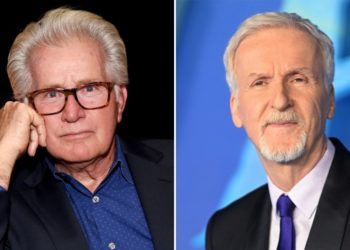A sharp decline in imports, driven by the administration’s trade policies, could lead to empty store shelves in May.
Port authorities have warned of a “precipitous” decline in shipping volumes into the U.S., noting that several major retailers were “stopping all shipments from China based on the tariffs.”
Why It Matters
President Donald Trump‘s tariffs, in particular the staggering rates placed on Chinese imports, threaten to raise the cost of importing goods into the U.S. As a result of the expected drop in transpacific shipments, concern has grown that retailers will be unable to ensure sufficient product availability to meet customer demand.
What To Know
Speaking with CNBC this week, Port of Los Angeles Executive Director Gene Seroka said he anticipates next week’s incoming cargo volume to drop by over a third compared to 2024.
“According to our own port optimizer, which measures the loadings in Asia, we’ll be down just a little bit over 35 percent next week compared to last year,” Seroka said. “And it’s a precipitous drop in volume with a number of major American retailers stopping all shipments from China based on the tariffs.”
Seroka added that, in addition to the reduction in volumes, he expects around a quarter of typically scheduled ship arrivals to be canceled in May.
The number of Asia-U.S. “blank sailings”—port calls or voyages canceled by the carrier—has risen drastically, according to a recent report from maritime data platform Sea-Intelligence.
For shipments scheduled to take place April 14 to May 11, it found that blank sailings had increased from the equivalent of about 60,000 containers in late March to 367,800 by the second week of April.
In the Institute for Supply Management’s (ISM) latest manufacturing Purchasing Managers’ Index (PMI), respondents highlighted concerns over the tariffs’ impact on shipments and operations.
“Business climate is apprehensive, and with tariff costs implemented, all inbound Chinese shipments are on hold,” one wrote. “It is not feasible for our business or customers to sustain the pricing required to provide an acceptable margin.”
What People Are Saying
Gene Seroka, executive director of the Port of Los Angeles, told CNBC: “Realistically speaking, until some accord or framework can be reached with China, the volume coming out of there—save a couple of different commodities—will be very light at best.”
President Donald Trump, in response to concerns over empty shelves, said: “Somebody said, ‘oh, the shelves are gonna be open.’ Well, maybe the children will have two dolls instead of 30 dolls, and maybe the two dolls will cost a couple of bucks more.”
Treasury Secretary Scott Bessent, asked whether he was concerned about empty shelves, told Fox & Friends: “Not at present.”
“We have some great retailers,” he added. “I assume they pre-ordered. I think we’ll see some elasticities. I think we’ll see replacements, and then we will see how quickly the Chinese want to de-escalate.”
A respondent in the ISM’s latest manufacturing survey wrote: “Uncertainty over tariffs is providing a big challenge from both Tier-1 suppliers we will have to pay tariffs on directly and Tier-2 suppliers that will try to pass tariffs through to us in the form of price increases and tariff surcharges.”
“Tariffs impacting operations—specifically, delayed border crossings and duties calculations that are complex and not completely understood,” another said. “As a result, we are potentially overpaying duties. Unsure of potential drawbacks. Implementation of tariffs and their application is sudden and abrupt. The business is taking countermeasures.”
Ryan Young, senior economist at the Competitive Enterprise Institute, told Newsweek: “Tariff-related shipping slowdowns will cause a regional cascade effect in the U.S., a little like when COVID-19 first hit. It will first be visible in West Coast ports, which have the fastest shipping times from Asia. After that it will spread to Gulf ports like Houston, which take a little longer to reach, then East Coast ports from the Carolinas up to New England.”
What Happens Next
The administration has expressed optimism that it can reach a deal with China soon, after which the tariff rates would come down significantly. While Beijing has denied having any firm intention to engage in trade negotiations, Bessent has described the current situation as “unsustainable from the Chinese side.”
The post Americans Face Empty Shelves Within Weeks appeared first on Newsweek.




